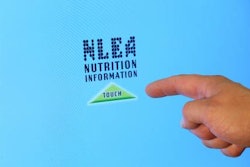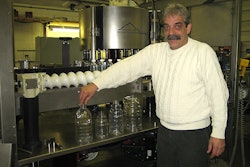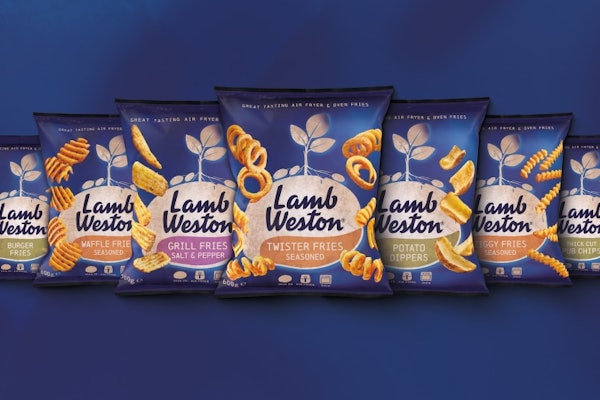This is a story about scientific proof, free speech, and somebody’s uncle.
First, as for scientific proof: the Food and Drug Administration said in May that they don’t find scientific proof that drinking green tea reduces one’s risk of developing heart disease. They were reacting to a petition filed by companies called Ito En, Ltd and Ito En (North America), Inc.
FDA said the evidence was so lacking that it wouldn’t even permit companies from saying on their green tea labels that the tea might help your heart, provided the company also added qualifications and disclaimers about how it’s a controversial claim. “Adding a disclaimer or incorporating qualifying language that effectively characterizes the claim as baseless is not a viable regulatory alternative,” said FDA, “because neither the disclaimer nor the qualifying language can rectify the message conveyed by the unsubstantiated claim.”
Yikes. They’re not kidding around. The agency looked at more than 105 publications, including review articles; in vitro articles; two animal articles; government publications; intervention studies and observational studies, and other resources, and still said it wasn’t good enough.
And it’s not as if FDA was insisting on “significant scientific agreement” before allowing the claim. After all, “qualified health claims” are designed to be statements on food labels that say a food can help prevent a disease, together with qualifying language that makes clear just how iffy the claim happens to be based on current scientific knowledge. In fact, just last year FDA allowed qualified claims to be made for green tea’s possible ability to prevent breast or prostate cancer. And even then the agency thought it was “highly unlikely” to be true.
Second, the reason that discussions like this are taking place is because of our Constitutional right to Free Speech. It is nothing less than an exercise of a company’s right to free speech that makes courts and FDA say they can tout the disease-fighting benefits of a food even if there’s only emerging evidence that the food helps fight it, or some disagreement among the studies.
FDA’s policy, announced in 2003, was forced by a court decision. Under the policy, FDA reviews company petitions asking for permission to make qualified health claims. FDA allows the claims whenever it’s possible to make the “qualified” claim and not end up misleading the public about the real state of the evidence. For example, to make a claim based on a single study that was contradicted by 25 other studies would probably be considered misleading.
So, qualified claims assert that some evidence shows the food may fight disease, together with qualifiers and disclaimers that make clear the limits of the claim or that it is uncertain or still-being-studied. As in, “One small study has shown that chicken soup cures the common cold, though other studies do not.”
Before the court decision, FDA’s traditional approach to foods making claims about diseases was not to allow any statements about a food-disease relationship until there was “significant scientific agreement” that the food had that beneficial effect. FDA’s approach was, Until the medical community agrees it is so, you are not to say it is so on the food label or in advertising, and no hinting, winking, signaling, passing notes under the desk, no fooling around.
Third, what does “somebody’s uncle” have to do with these issues? Just this: Don’t underestimate the power of individual belief, rather than science, in guiding behavior and also in adding pressure on regulators to allow more free flow of information. That’s because, whenever there’s a debate about whether a particular food can help prevent a particular disease, you will always find somebody whose uncle swears it’s true.
You’ll hear statements like, “My uncle eats blueberries soaked in beer every day and his bursitis is cured!” or “My uncle has been eating that dandelion leaf salad since he was 8 years old, and he’s never been in the hospital a day in his life.”
The point is not to doubt everyone’s uncle, with all due respect, but to realize these two things: First, there will always be large segments of the population who simply don’t care what the government thinks is true, and who will rely instead on their own beliefs or uncles. And second, so-called anecdotal reports like those from an uncle carry essentially no weight with FDA or the Federal Trade Commission or any other government agency trying to establish if something is scientifically true.
But those who listen to their uncles often don’t want FDA or other agencies “protecting” them from false or misleading claims or products. They’d rather make their own decisions about what’s good for them. And voices like theirs are a big part of the reason the FDA was challenged in court about its strict approach to allowing claims, and the reason it now has a regulatory scheme that permits some qualified health claims.
One’s attitude on these issues depends in large part on the degree to which you trust the FDA to play the role of neutral arbiter of scientific fact. If instead you think FDA wants simply to erect roadblocks to keep consumers from getting useful new health information about green tea and other natural products, then you don’t want them deciding whether sufficient information exists to support a label claim. You’d rather they just get out of the way and let the market decide which claims will survive and which won’t.
The philosophy of lightening up on government regulation of business gets a fair amount of attention these days, and maybe we’d all be better off if a freer flow of information on food labels was permitted.
On the other hand, agencies like FDA and FTC have traditionally been given the job of protecting the public from dangerous products (and false health claims can be actually dangerous if consumers forego proven treatments in favor of the false ones) and also to protect the public from phony, ineffective products that don’t do what they claim, even if they aren’t dangerous.
Are we moving to a world where these traditional functions of the government are going to be scrapped in the name of enhanced freedom of speech for companies and choice for consumers? It’s an interesting question. Discuss amongst yourselves, as they say.
But most people, I suspect, would tell you they believe FDA does indeed check out and clear every claim on a food or dietary supplement label before it’s made. (They don’t check them all out, by the way—and dietary supplement labels even make this point explicitly!). What’s more, I think most people want FDA to protect them from dangerous products, freedom and reduced-government philosophies notwithstanding. Companies do, too, because companies trying to market legitimate products would just as soon have FDA take action against their unscrupulous competitors.
As with so many things, balance is the key. The best approach balances freedom and protection. There is value of course in a free flow of information, but also in controls on false or misleading information.
The trick is to keep those controls from making companies, or consumers, want to cry “Uncle!”


























